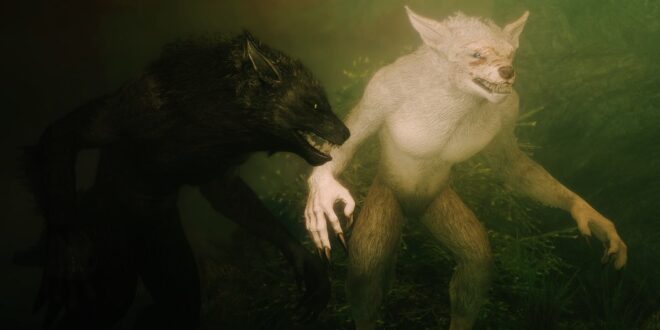Werewolves Legends: Overview
Werewolves are monsters that many people know about, although they are coming off as being less monstrous in some teen movies like Twilight. Throughout the centuries, the myth of the werewolf has changed and transformed, much like the werewolf itself. The legend of the werewolf has been around for at least a couple thousand years, and it doesn’t seem like this mystery is intriguing people yet. Although many people no longer believe in werewolves, the origins and myths of the werewolf are still fascinating topics.
Origin Of Werewolves
The werewolf has many different origin stories, spanning many different countries worldwide. In some legends, the werewolf was a man who could change his form at will. In other stories, he must wear something to take on his werewolf form. The involvement of witchcraft makes the basis in some stories, and then, of course, there’s the usual myth of the full moon causing a werewolf to change.
It is usually believed that people can become werewolves once a werewolf bites them. In some stories, it is hereditary; in others, it is a curse that a witch brings upon someone.
No matter how the werewolf was made, many cultures knew ways to kill a werewolf. Some of these things are in many stories, like silver and daggers to the heart. However, some cultures believed mercury and the wolfbane plant could also harm a werewolf. While these things can harm a werewolf, it is a little harder to kill a werewolf(although a stab through the heart will kill about any monster).
Silver can kill a werewolf if it is in bullet form or stabbed with a silver blade. Other ways to kill a werewolf are to chop off its head, shoot it with silver bullets, or kill it while they are in its human form.
Curing Someone of Werewolfism
Luckily, there are myths on ways to cure someone of werewolfism as well. Of course, many of these cures resulted in the death of the “werewolf”. One of the more fatal ways of curing a werewolf was to slice the person’s forehead with a blade. Some cultures believed that having werewolves came from a curse, someone could be cured by becoming a Christian.
Calling a werewolf by their Christian name, putting nails into their hands, and exorcism were also forms of curing werewolfism. These treatments did more harm than good to those accused of being werewolves.
Reasons Why People Believed in Werewolves
Many reasons made believing in werewolves seem realistic hundreds of years ago. Many mental and physical diseases and disorders of the time were misunderstood as symptoms of werewolfism. Studies from recent years have even shown that more disturbances are reported to police stations when there is a full moon than on any other night.
Hundreds of years ago, the full moon could have played an even bigger part in being a placebo effect and made more people act crazy. This could have led to many people being accused of werewolfism. Centuries ago, there were werewolf trials just like there were witch trials.
The rare disease, hypertrichosis, confuses people who associate it with werewolfism. This disease makes some people uncontrollably grow hair all over their faces and body, giving them an animalistic appearance. Other times, if an actual wolf mauled an animal or person, and then another person came by later, pretty much being in the wrong place at the wrong time, then they could have been accused of werewolfism.
Werewolf Mythology: Summary
While the myth of the werewolf is still alive and well, luckily, there are no more werewolf trials. Since the beginning of the werewolf story, the myth has evolved dramatically and even circled a bit. In the beginning, werewolves could change themselves at will, and now they can in the Twilight books in movies.
They are in the mainstream of pop culture, from Harry Potter to Underworld and even shows like Teen Wolf. It doesn’t seem like the legend of the werewolf will die out any time soon, but if the pattern continues, the myth is bound to keep evolving, just like it has been for centuries.
 Sun Signs Everything Under The Sun!
Sun Signs Everything Under The Sun!
